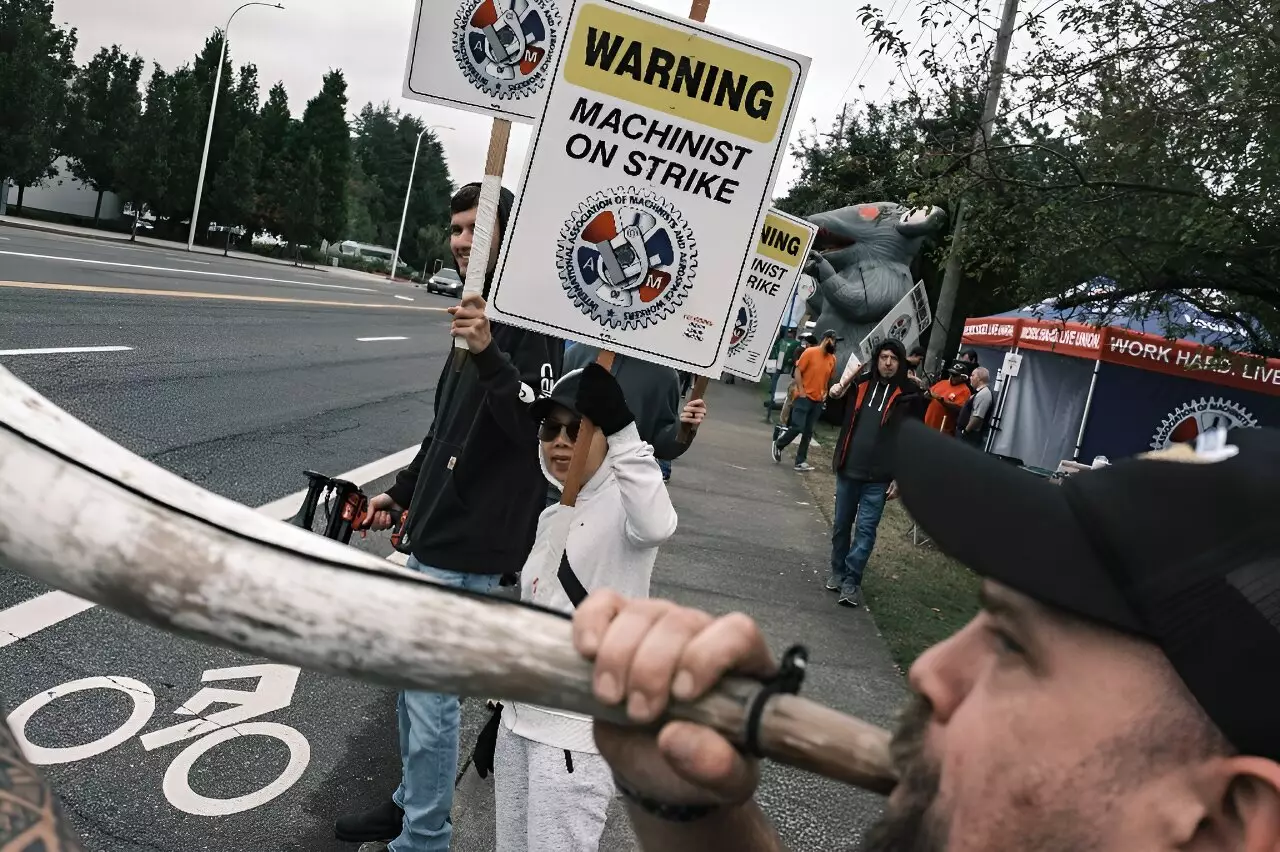Tensions continue to rise between Boeing and its workers as negotiations reached an impasse last week. The International Association of Machinists and Aerospace Workers (IAM), representing approximately 33,000 employees, announced that discussions had “broken off” without a resolution. This stalemate comes after a significant strike began on September 13, following a decisive vote by union members to reject a contract proposal. The lack of agreement has led to the shutdown of major assembly plants, notably those for the 737 MAX and 777 aircraft.
The Stakes for Boeing and Its Workforce
The stakes in this conflict extend far beyond the plants themselves. Boeing’s reputation, financial stability, and future projects hang in the balance, while the IAM workers seek better conditions and benefits. The union’s refusal to accept Boeing’s latest offer, which included a proposed 30% wage increase along with the reinstatement of an annual bonus, underscores the depth of dissatisfaction among the employees. These demands reflect not only a call for immediate financial relief but also a desire for long-term security through a sustainable pension plan.
Boeing’s management expressed a willingness to resume discussions, framing their commitment to restoring relations with union representatives as a priority. In their statement, they emphasized an intention to negotiate in good faith, striving for resolution. However, the IAM’s critiques indicate a fundamental distrust in Boeing’s strategies. Negotiators have accused the company of stonewalling on crucial issues such as the reinstatement of the defined benefit pension plan—an insistence that has become a pivotal point of contention.
The involvement of the Federal Mediation and Conciliation Service (FMCS) highlights the seriousness of the situation. Although the mediation attempted to break the deadlock, the IAM reported that it encountered minimal progress, particularly regarding the pension issue, which remains a cornerstone in the union’s demands. The IAM’s description of their discussions as “frank” suggests a clear communication of positions but also points to the emotional and complex nature of labor negotiations.
Implications for the Future
As the deadline set by Boeing for the acceptance of their latest proposal has lapsed, the future remains uncertain. The IAM’s insistence on resumed mediation and dialogue indicates a willingness to continue fighting for improvements. Meanwhile, Boeing’s operational capacity is hampered by the ongoing strike, potentially affecting production schedules and delivery times.
Both parties face critical decisions that will shape their future interactions and, perhaps, the overall landscape of labor relations within the aviation industry. The outcome of these negotiations will likely have lasting implications, reflecting broader trends in labor movements and corporate accountability across sectors.


Leave a Reply